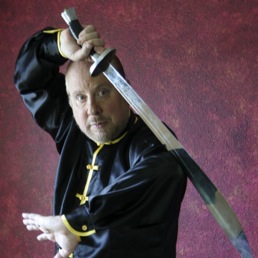 Do you have a felt sense of connection to the Jewish transmission?
Do you have a felt sense of connection to the Jewish transmission?
Now there is, absolutely.
How is it different from your connection with Taoism?
Well, it’s a different tradition. It’s like asking me if I feel different when I speak Chinese compared to when I speak English. Yes, I do. Language and landscape influence how spirituality is expressed. Taoism and Judaism are as different as China is from the Midddle East, or Egg Drop Soup from Matzah Ball Soup. Yet they are both delicious!
From your understanding of Qi as energy or life energy, would you say that there is a particularly Jewish frequency or wave-length of Qi?
Yes, there is a particular frequency to each spiritual path; put them all together and you have a symphony of beautiful music. Yet, qi as life breath doesn’t have a particular religious inflection to it. So the ruach that God breathes into the Earth person, Adam, is free of particularization. It’s not a Jewish breath that was breathed into Adam, nor was Adam Jewish. Adam is just an Earth person (related to the Hebrew word adama meaning earth). We all breathe the same air, we are all infused by the same creative power. You can call it breath, prana, ha (in Hawaiian), qi, ruach (as it’s called in the Jewish tradition), or any of a myriad of other similar terms.
On the differences of Judaism and Taoism:
I would add that there is more of an intellectual tendency and more recognition of intellect as a path of revelation in Judaism than there is in Taoism. If you asked 100 Jews, “Who or what is God?” I imagine you would get at least 101 opinions. But if you asked the same question of 100 Taoists, I doubt there would be more than 25 answers. The majority of Taoists would either sit silently or laugh.
In Taoism, although there is a respect for the importance of intellect, nevertheless there is a clear and consistent emphasis on bao pu jian su, “Embrace the uncarved block of wood, see the unbleached silk.” That is, “recognize your original nature; don’t carve it up with rules and regulations; reduce selfishness and grasping.” That’s more the emphasis—simplicity and unity with nature.
============================================================
Ken Cohen is a renowned health educator, Qigong GrandMaster, and practitioner of indigenous medicine. He is the author of the critically acclaimed books The Way of Qigong: The Art and Science of Chinese Energy Healing and Honoring the Medicine: The Essential Guide to Native American Healing, as well as numerous Sounds True audio/DVD courses and more than 200 journal articles on spirituality and health. Ken speaks and reads the Chinese language, and his academic training includes graduate study of Taoism and theology.
Website: www.kennethcohen.com
Qigong Facebook Page: https://www.facebook.com/pages/Qigong-Research-Practice-Center-The-Teachings-of-Kenneth-Cohen-%E9%AB%98%E6%BC%A2%E6%B0%A3%E5%8A%9F%E5%AD%B8%E9%99%A2/199087770119351
Native American Traditions Facebook Page: https://www.facebook.com/pages/Honoring-the-Medicine-Native-American-Indigenous-Healing-Traditions/207252779285034
Books (published by Random House)
The Way of Qigong: The Art and Science of Chinese Energy Healing
Honoring the Medicine: The Essential Guide to Native American Healing
Audio/Visual Programs (published by Sounds True) http://www.soundstrue.com/shop/welcome
The Essential Qigong Training Course
Native Wisdom: Seven Keys to Health & Happiness
Breathing
Qigong Meditations
Taoist Healing Imagery
Qi Healing
Qigong: Traditional Chinese Exercises for Healing Body, Mind, and Spirit
Taoism: Essential Teachings of the Way and Its Power
Beginner’s Guide to Feng Shui
The End of Stress